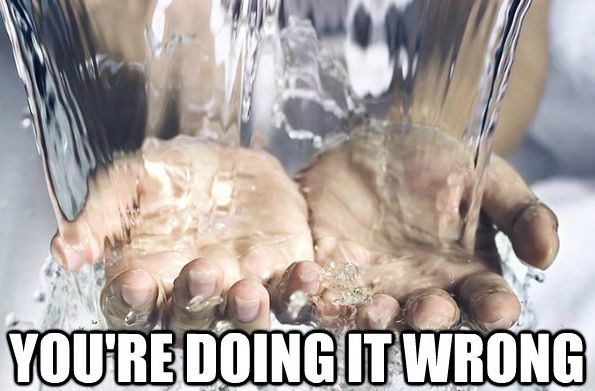Are You Washing Your Hands Properly? Probably Not, Only 5% Of Us Do [VIDEO]

Handwashing, one of the most important public health procedures, is simple, but chances are that you are doing it wrong. A new study out of Michigan State University (MSU) showed that the overwhelming majority of people who washed their hands after using the bathroom were not washing long enough for the soap to kill bacteria living on their hands.
What Percent of People Are Properly Washing Their Hands?
A shocking five percent of people monitored for the survey were actually scrubbing with soap and water for enough time to effectively wash their hands. And it gets even worse.
One-third of all the people who did wash their hands didn't even use soap and 10 percent of people didn't wash their hands at all after using the bathroom. Participants were among 3,749 people observed for the study in public bathrooms of bars and restaurants. This was the first study that looked at the duration of handwashing and whether or not people used soap when they did 'wash' their hands.
"These findings were surprising to us because past research suggested that proper hand washing is occurring at a much higher rate," said Dr. Carl Borchgrevink, Ph.D., associate professor of hospitality business at MSU and lead investigator on the study.
How Long Should You Wash Your Hands?
Hand washing is the number one way to prevent the spread of infections, according to the Centers for Disease Control and Prevention. Not washing hands leads to half of all foodborne illnesses and was a major reason that the plague spread so effectively during the middle ages.
Washing hands with soap for 15 to 20 seconds enthusiastically, making sure to build up a good lather, is the only effective way to properly wash your hands. But the study found that people who wash their hands only wash them for six seconds on average.
Men Versus Women
The study also found that there was a difference in behavior between men and women in their handwashing practices. Among men, 15 percent didn't wash their hands at all, compared to seven percent of women. And when people did wash their hands, only 50 percent of men used soap while 78 percent of women did.
Implications for Business Owners
This can have huge implications not only for customers in restaurants but also for people who run restaurants and bars. The research found that if a sink was dirty, then people were far less likely to wash their hands, and if a sign was present as a reminder, people were more likely to wash their hands. "Imagine you're a business owner and people come to your establishment and get foodborne illness through the fecal-oral route - because people didn't wash their hands - and then your reputation is on the line," Borchgrevink said. "You could lose your business."
Source: Borchgrevink C, Cha, J, Kim S. Hand Washing Practices in a College town Environment. Journal of Environmental Health. 2013.



























